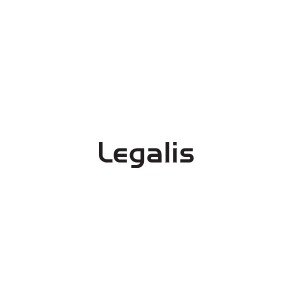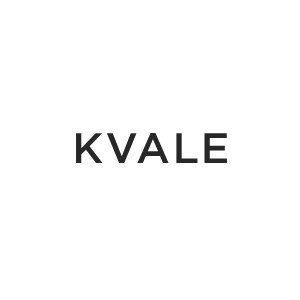Best Renewable & Alternative Energy Lawyers in Norway
Share your needs with us, get contacted by law firms.
Free. Takes 2 min.
Or refine your search by selecting a city:
List of the best lawyers in Norway
About Renewable & Alternative Energy Law in Norway
Norway is a global leader in renewable and alternative energy, with a significant portion of its electricity produced from hydropower and growing investments in wind, solar, and bioenergy. The legal framework in Norway strongly supports the development, regulation, and integration of renewable energy sources. Norwegian laws are shaped by both national priorities and commitments to international climate agreements, ensuring sustainable management and growth of energy resources while balancing environmental concerns and local interests.
Why You May Need a Lawyer
Legal guidance is critical when dealing with renewable and alternative energy projects in Norway, whether you are an individual, a business, or a developer. Here are common situations where legal support is essential:
- Navigating complex permit and licensing processes for new energy installations such as wind farms, solar panels, or small-scale hydroelectric plants.
- Interpreting and complying with environmental regulations and planning and zoning requirements.
- Drafting and negotiating contracts for project development, financing, and partnership agreements.
- Advising on land acquisition, property rights, or rights of way issues.
- Handling disputes with neighbors, authorities, or contractors.
- Ensuring compliance with local and EU laws regarding energy production, grid access, and market participation.
- Applying for available subsidies, support schemes, tax benefits, or managing related compliance obligations.
- Facilitating cross-border renewable energy projects or foreign investment.
Local Laws Overview
Norway has established a robust set of laws and regulations governing the renewable and alternative energy sector. These include:
- Energy Act (Energiloven): Regulates production, transformation, transmission, trading, distribution, and utilization of energy, with a focus on efficient and environmentally sound energy supply.
- Renewable Energy Directive: Implements European requirements on promotion of energy from renewable sources.
- Planning and Building Act: Ensures all construction, including renewable projects, complies with land use planning and environmental protection measures.
- Water Resources Act: Applies to hydropower, ensuring sustainable water management and balancing energy production with ecological concerns.
- Licensing and Permits: Most renewable projects require approval from the Norwegian Water Resources and Energy Directorate (NVE) and must follow public consultation procedures.
- Grid Access: Regulations secure non-discriminatory access to the grid for renewable energy producers, overseen by the Norwegian Energy Regulatory Authority (RME).
- Environmental Impact Assessments: Comprehensive assessments are required for large-scale projects to evaluate their environmental and social impacts.
Frequently Asked Questions
What types of renewable energy are most common in Norway?
Hydropower is by far the most dominant renewable energy source in Norway, but wind power, solar energy, and bioenergy are increasingly being developed.
Do I need a permit to install solar panels on my property?
Small solar installations for personal use may only require notification to the local municipality, but larger or commercial installations typically need a permit and must comply with planning laws.
What government agencies regulate renewable energy in Norway?
The Norwegian Water Resources and Energy Directorate (NVE) and the Ministry of Petroleum and Energy are the central regulatory bodies. The Norwegian Energy Regulatory Authority (RME) oversees market rules and grid access.
Are there subsidies or tax incentives for renewable energy projects?
Yes, Norway offers various incentives such as Enova grants, tax deductions, and green certificates to promote renewable energy, especially for innovative or environmentally friendly projects.
Can private individuals produce and sell renewable electricity?
Yes, individuals can produce renewable energy for their own use and may sell surplus electricity back to the grid according to market rules and with appropriate agreements.
What are the main environmental requirements for new energy projects?
Projects must undergo an environmental impact assessment if they are above certain size thresholds. Compliance with national and EU environmental standards is mandatory.
How long does it take to get approval for a wind or hydropower project?
The process can take several years, involving feasibility studies, public consultations, permit applications, and impact assessments. Early legal assistance can streamline the process.
Can foreign investors participate in Norway's renewable energy sector?
Yes, Norway encourages foreign investment. However, all projects must comply with Norwegian laws, and additional scrutiny may apply for investments with national security considerations.
How are community interests and indigenous rights protected?
Norwegian law prioritizes public participation and respect for Sami (indigenous) rights, often requiring specific consultations and accommodations in project planning.
What happens if my project is in conflict with environmental or local interests?
Conflicts may lead to project modifications, additional requirements, or even rejection. Legal advice can help navigate these issues and facilitate dialogue with stakeholders.
Additional Resources
For further information and support, consider contacting or researching the following
- Norwegian Water Resources and Energy Directorate (NVE)
- Ministry of Petroleum and Energy
- Norwegian Energy Regulatory Authority (RME)
- Enova SF (offers grants and support schemes)
- Norwegian Environment Agency
- Norwegian Association for Wind Energy (NORWEA)
- The Sami Parliament (Sámediggi) for indigenous rights consultations
- Local municipality planning and building offices
Next Steps
If you need legal assistance for a renewable or alternative energy project in Norway, consider these steps to move forward
- Gather relevant documentation about your project including technical specs, plans, and location details.
- Identify your main objectives and potential legal questions or concerns.
- Contact a lawyer or legal advisor with experience in Norwegian energy law and environmental regulations.
- Consult with relevant government agencies or authorities early in the planning stage.
- Participate in necessary public consultations and ensure you comply with transparency requirements.
- Review your eligibility for grants, permits, or incentives and start the application processes as early as possible.
- Maintain clear and ongoing communication with all stakeholders including neighbors, local communities, and environmental groups.
Working with a qualified legal professional from the beginning ensures you avoid common setbacks, comply with all regulatory requirements, and achieve your project goals efficiently.
Lawzana helps you find the best lawyers and law firms in Norway through a curated and pre-screened list of qualified legal professionals. Our platform offers rankings and detailed profiles of attorneys and law firms, allowing you to compare based on practice areas, including Renewable & Alternative Energy, experience, and client feedback.
Each profile includes a description of the firm's areas of practice, client reviews, team members and partners, year of establishment, spoken languages, office locations, contact information, social media presence, and any published articles or resources. Most firms on our platform speak English and are experienced in both local and international legal matters.
Get a quote from top-rated law firms in Norway — quickly, securely, and without unnecessary hassle.
Disclaimer:
The information provided on this page is for general informational purposes only and does not constitute legal advice. While we strive to ensure the accuracy and relevance of the content, legal information may change over time, and interpretations of the law can vary. You should always consult with a qualified legal professional for advice specific to your situation.
We disclaim all liability for actions taken or not taken based on the content of this page. If you believe any information is incorrect or outdated, please contact us, and we will review and update it where appropriate.
Browse renewable & alternative energy law firms by city in Norway
Refine your search by selecting a city.















